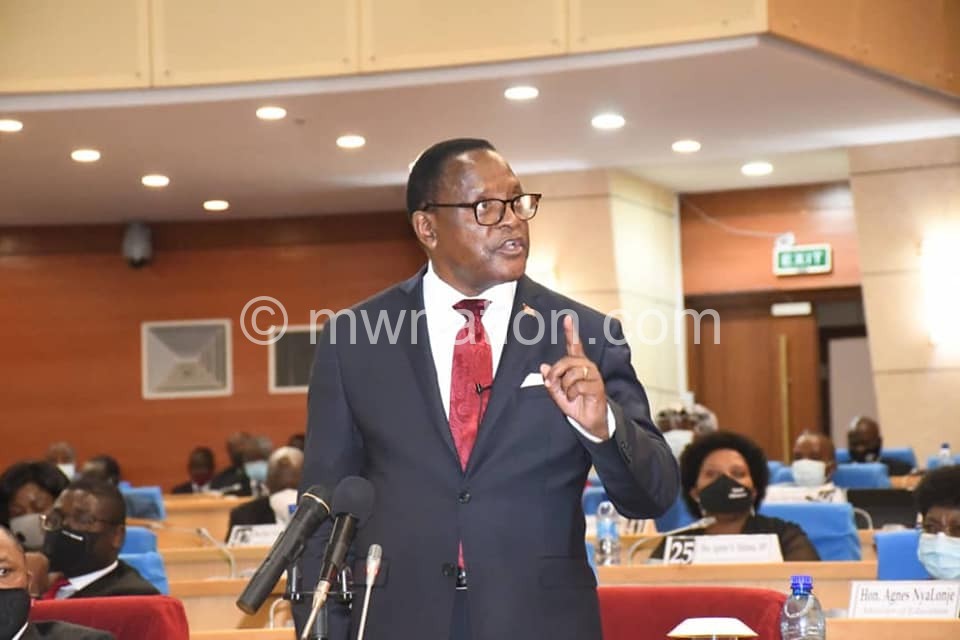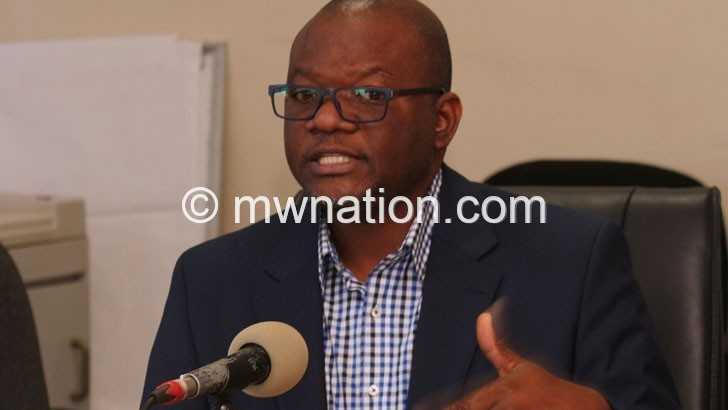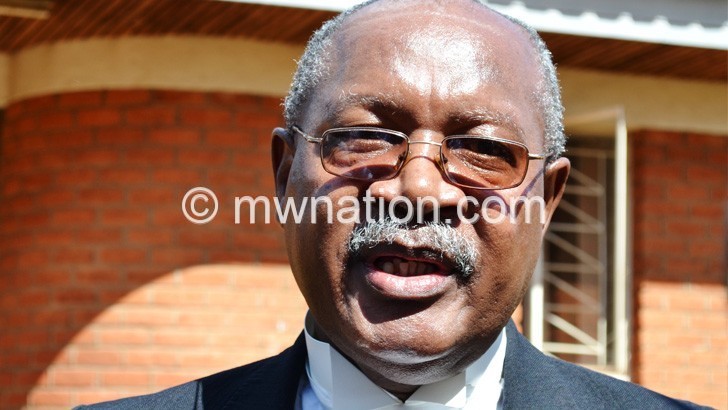Chakwera moves to trim powers
- Tells Parliament three areas of focus
- Vows to free ACB to effectively fight graft
President Lazarus Chakwera yesterday told Parliament he is dispensing with three presidential powers, including appointment of director of the Anti-Corruption Bureau (ACB) and pledged to ring-fence funding to Parliament.

During an appearance in Parliament under Section 89(3)(c) of the Constitution which provides that “the President
shall each year, immediately before the consideration of the official budget, attend Parliament and shall; (c) respond to questions”, the President said he will also relinquish the ceremonial chancellorship of public universities.
Responding to a query from Chikwawa North member of Parliament (MP) Owen Chomanika (Democratic Progressive Party-DPP) in a response to Chakwera’s maiden State of the Nation Address (Sona) delivered last Friday, the President said the reduction of the presidential powers will be both legislative, administrative and ceremonial.
Said Chakwera: “In a nutshell, there is one Executive power, one administrative power and one ceremonial power I propose to dispense with without crippling the functionality of the Presidency.
“The Executive power due for review is the power to appoint the director of the Anti-Corruption Bureau for it is my view that Parliament should interview suitable candidates publicly and nominate three names to the President so that one of them can be appointed.
“Similarly, I hold that all candidates for public offices that are subject to confirmation by the Public Appointments Committee of Parliament be interviewed publicly.

“The administrative power due for review is the power to control the cash flow of Parliament. It is my view that as it is with the Judiciary, once a budget is passed, Parliament’s vote should be ring-fenced and put in accounts controlled by the Legislature itself, subject to its own audits.”
The President said the ceremonial power to preside over public universities as Chancellor is a relic of a bygone era.
“In this new century, where our goal is to increase the number of public universities and establish them as bastions of free thought, academic administrators must be fully empowered to run our universities. Each of these changes is unprecedented, but needed, nonetheless,” he said.
The sentiments by Chakwera, who alongside Vice-President Saulos Chakwera passionately campaigned on a platform of rooting out corruption, comes at a time a draft amendment to the Corrupt Practices Act (CPA) had been left to gather dust since 2013. The proposed amendment tackled the issue of appointment of the director of ACB, among other things.
In May 2017, delegates to a two-day National Anti-Corruption Conference mentioned the presidency as the office that needed to demonstrate that fighting corruption is possible. The delegates also pushed for the amendment of the law covering the appointment and removal of ACB director.

However, the delegates’ plea fell on deaf ears as former president Peter Mutharika and his minister of Justice and Constitutional Affairs Samuel Tembenu rejected the proposals.
Reacting to the position of Chakwera, who became President after winning the court-ordered fresh presidential election on June 23, ACB director general Reyneck Matemba yesterday welcomed the move. He also asked the President to move to protect the office of the deputy director of ACB.
He said: “That’s the way to go. The President got it right. One of the reasons people question our [ACB] independence is because of the appointment of the director and deputy director. It has been used to discredit our credibility. It will be proper if that aspect is taken away.”

Matemba said the bureau last year worked with the Ministry of Justice to amend some sections of the CPA on the appointment of the director, but the partial amendment of Section 5 of the CPA last year still left the process of the appointment to the Executive.
Currently, according to Matemba, the amended section states that a committee comprising members of the eight pillars of the Anti-Corruption Strategy; Executive, Legislature, Judiciary, media, private sector, traditional leaders, faith-based organisations and religious leaders, women, local government, youth and academia will invite applications and select three candidates following interviews to be submitted to the President.
But in contrast, Chakwera wants Parliament to take over the function of interviewing the candidates and submitting the three nominees to the President.
Private practice lawyer Kamudoni Nyasulu, a leading financial crimes expert and former anti-corruption special prosecutor, yesterday also applauded the President.
However, he added that there was need to ensure independence of all governance institutions apart from the ACB.
Said Nyasulu: “In the fight against crime and the loss of public money there are many stakeholders, but the core institutions include the Auditor General of the National Audit Office, the registrar of financial institutions who is also the Governor of the Reserve Bank of Malawi, the Financial Intelligence Authority, the ACB, the Director of Public Prosecutions and tangentially, the Ombudsman.”
He said there were three elements that define and assure integrity and effectiveness of the institutions, namely tenure, mandate and their oversight or mechanisms designed to supervise or monitor the implementation of their mandate.
Nyasulu said apart from the appointment, equally important in ensuring the security of tenure for governance institution was also safeguarding against presidential overreach in removal of officers.
The draft 2013 CPA amendment by the bureau itself, unveiled during the tenure of then director Justice of Appeal Rezine Mzikamanda, envisaged the President no longer having powers to unilaterally fire a director and proposed that the President’s decision to fire be subject to the approval of the same parliamentary committee.
In other areas of his
environment.
On MPs official residences, Chakwera said the move was aimed at saving public funds and revealed that the State would spend K2.7 billion in housing allowances of the 193 legislators during their five-year tenure.
Said the President: “The people of Malawi will pay over K2.7 billion in housing allowances to the members of this House during this term of office, yet not a single member has stood up to say that they would like to forfeit this allowance to go towards their constituents.
“From this double standard, I discern that the objections to the provision of an official house for MPs are not motivated by a desire to save money, but a desire to keep Malawians paying MPs’ housing allowances indefinitely.
“My proposal would cost the Malawian taxpayer nothing and save the taxpayer billions in the long term, so I am amazed that there are members here who believe it would be better to keep costing the taxpayer billions and saving the taxpayer nothing.”
He also rejected claims that the proposal of building houses for MPs will prevent government from building houses for teachers, nurses, soldiers, and civil servants.
On why he had failed to address the issues of climate change in his maiden State of the Nation Address, Chakwera said he will soon deliver a comprehensive address on the matter following consultations with experts, including the eminent Professor Sosten Chiotha; hence, avoided pre-empting the issues in the Sona.
He also skipped questions on economic projects, saying some of the requested information would be delivered when the Minister of Finance delivers the Tonse Alliance’s maiden national budget statement this morning.
Earlier, some of the opposition members demanded—albeit without responses to the MPs’ questions, Chakwera rejected assertions by the former governing DPP officials, notably Leader of Opposition in Parliament Kondwani Nankhumwa, that the new Tonse Alliance administration was persecuting its rank and file.
He said: “I must hasten to add that he must also take off his partisan lenses when assessing the arrests effected by the police against suspected law-breakers, for as far as I know, no official of the DPP has been arrested, unless we are speaking of arrested development. But if those public servants who have been arrested are DPP members, let the Leader of Opposition tell us plainly.
“In any event, neither I nor the Vice-President have any involvement in the decisions made by law enforcement agencies about whom to arrest, for they are now enjoying the independence from political interference they were denied by the DPP administration.”
Chakwera has become only the second President among five in the post-1994 multiparty democracy to appear before Parliament as provided in the Constitution.
In Section 89(4), the Constitution also provides that “the President shall be called to Parliament to answer questions at such times as may be prescribed by the Standing Orders of Parliament or on a motion of the National Assembly or Senate”.





